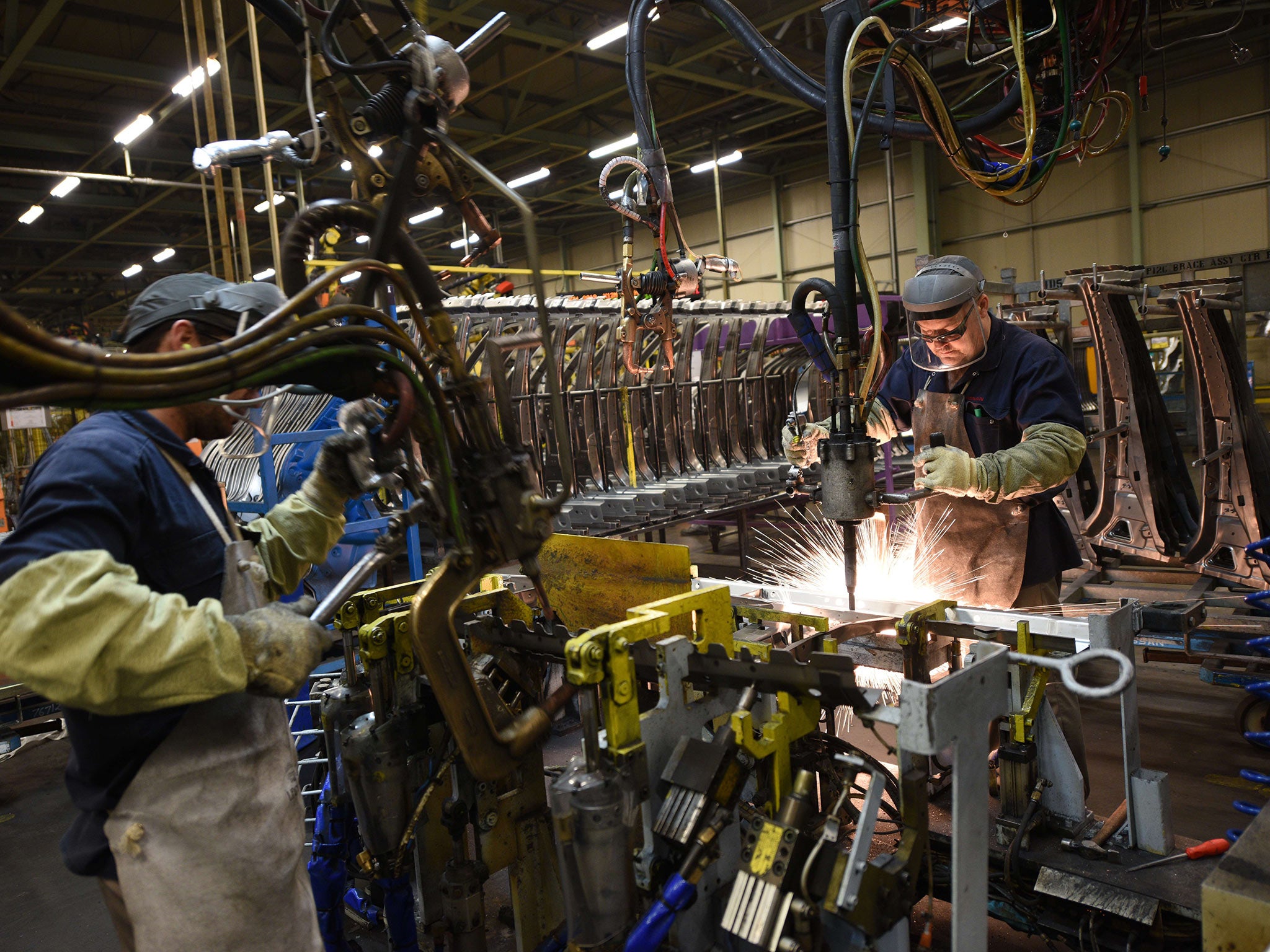UK manufacturers report buoyant growth as world economy strengthens
The prospects for next year are less bright, with factory output growth forecast to slow to 0.5 per cent in 2018

Your support helps us to tell the story
From reproductive rights to climate change to Big Tech, The Independent is on the ground when the story is developing. Whether it's investigating the financials of Elon Musk's pro-Trump PAC or producing our latest documentary, 'The A Word', which shines a light on the American women fighting for reproductive rights, we know how important it is to parse out the facts from the messaging.
At such a critical moment in US history, we need reporters on the ground. Your donation allows us to keep sending journalists to speak to both sides of the story.
The Independent is trusted by Americans across the entire political spectrum. And unlike many other quality news outlets, we choose not to lock Americans out of our reporting and analysis with paywalls. We believe quality journalism should be available to everyone, paid for by those who can afford it.
Your support makes all the difference.British factory output is on track for its fastest growth since 2014 this year as a stronger world economy offsets uncertainty about future exports to the European Union, but the outlook for 2018 is darker, an industry trade body said on Monday.
The EEF, which represents British manufacturers, revised up its forecast for factory output this year to 1.3 per cent from 1.0 per cent three months ago after its members reported buoyant orders in its latest quarterly survey.
The prospects for next year are less bright, with factory output growth forecast to slow to 0.5 per cent in 2018 - though this is less of a decline than the EEF had previously predicted.
“While growth and confidence haven't been knocked off track by the snap election, it is not plain sailing from here,” EEF economist Lee Hopley said, highlighting rising raw material costs, skills shortages and insufficient investment.
Britons head to the polls on Thursday in a national election called by Prime Minister Theresa May to boost her parliamentary majority before she starts two years of talks to leave the European Union.
One of Mrs May's main priorities is to regain the power to curb migration from the EU and more than halve the annual net inflow of immigrants to Britain to less than 100,000 a year.
Businesses have greeted this with little enthusiasm, and the EU has said any migration curbs will limit Britain's ability to export to the EU after the country leaves in 2019.
“It is vital that we remain open for business and negotiate new trade agreements with the EU and other key markets so that international markets remain open and accessible as soon as Brexit is completed,” said Tom Lawton, a partner at accountancy firm BDO, which sponsors the EEF quarterly survey.
Last quarter the EEF's members reported robust growth and Monday's survey showed that they expected it to continue during the current quarter, despite official data which showed a much softer performance in the first three months of this year.
Separate figures from the Markit/CIPS Purchasing Managers' Index last week showed that manufacturing activity grew at its fastest rate in three years in April and May.
Unlike the PMI, the EEF data suggested this was led by exports, not just domestic demand.
While sterling's weakness since last year's Brexit vote played a role, a bigger factor was stronger growth in Asia, North America, and continental Europe, the EEF said.
Reuters
Join our commenting forum
Join thought-provoking conversations, follow other Independent readers and see their replies
Comments